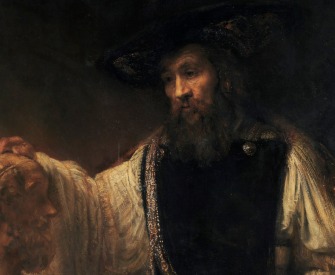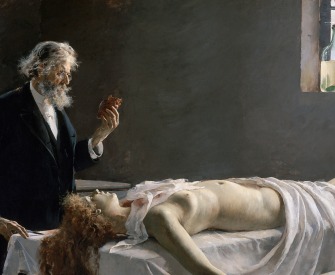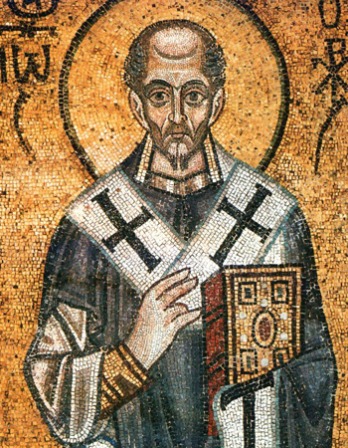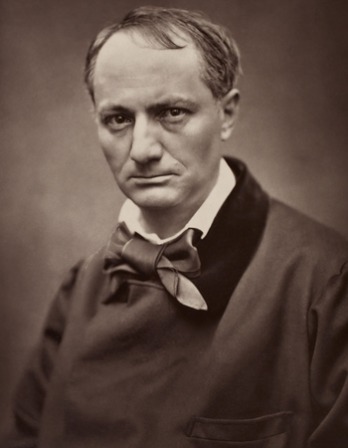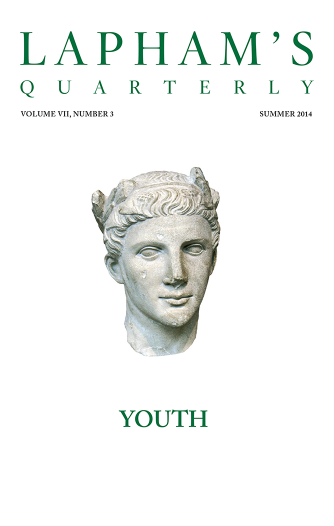Hamlet: Has this fellow no feeling of his business, that he sings at grave making?
Horatio: Custom hath made it in him a property of easiness.
Hamlet: ’Tis even so: the hand of little employment hath the daintier sense.
First Clown: [sings]
But age, with his stealing steps,
Hath clawed me in his clutch,
And hath shipped me into the land,
As if I had never been such. [throws up a skull]
Hamlet: That skull had a tongue in it, and could sing once: how the knave jowls it to the ground, as if it were Cain’s jawbone that did the first murder! It might be the pate of a politician, which this ass now overreaches; one that would circumvent God, might it not?
Horatio: It might, my lord.
Hamlet: Or of a courtier, which could say, “Good morrow, sweet lord! How dost thou, good lord?” This might be my Lord Such-a-one, that praised my Lord Such-a-one’s horse, when he meant to beg it; might it not?
Horatio: Aye, my lord.
Hamlet: Why, even so: and now my Lady Worm’s, chapless and knocked about the mazzard with a sexton’s spade: here’s fine revolution, and we had the trick to see it. Did these bones cost no more the breeding, but to play at loggats with ’em? Mine ache to think on it.
First Clown: [sings]
A pickax, and a spade, a spade,
For and a shrouding sheet:
O, a pit of clay for to be made
For such a guest is meet [throws up another skull]
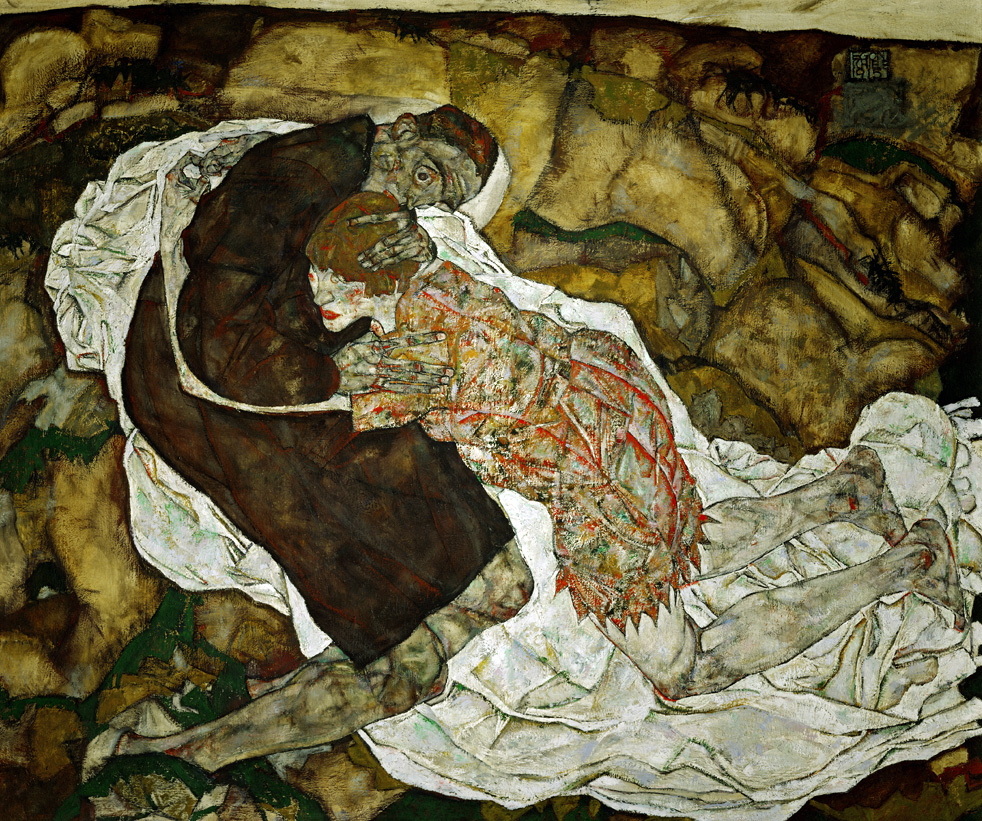
Death and the Maiden, by Egon Schiele, 1915. Österreichische Galerie Belvedere, Vienna, Austria.
Hamlet: There’s another: why may not that be the skull of a lawyer? Where be his quiddities now, his quillets, his cases, his tenures, and his tricks? Why does he suffer this rude knave now to knock him about the sconce with a dirty shovel, and will not tell him of his action of battery? Hum! This fellow might be in his time a great buyer of land, with his statutes, his recognizances, his fines, his double vouchers, his recoveries: is this the fine of his fines, and the recovery of his recoveries, to have his fine pate full of fine dirt? Will his vouchers vouch him no more of his purchases, and double ones too, than the length and breadth of a pair of indentures? The very conveyances of his lands will hardly lie in this box; and must the inheritor himself have no more, ha?
Horatio: Not a jot more, my lord.
Hamlet: Is not parchment made of sheepskins?
Horatio: Aye, my lord, and of calfskins too.
Hamlet: They are sheep and calves which seek out assurance in that. I will speak to this fellow. Whose grave’s this, sirrah?
First Clown: Mine, sir.
[sings] O, a pit of clay for to be made
For such a guest is meet.
Hamlet: I think it be thine, indeed, for thou liest in it.
First Clown: You lie out on it, sir, and therefore it is not yours; for my part, I do not lie in it, and yet it is mine.
Hamlet: Thou dost lie in it, to be in it and say it is thine: ’tis for the dead, not for the quick; therefore thou liest.
First Clown: ’Tis a quick lie, sir; ’twill away again, from me to you.
Hamlet: What man dost thou dig it for?
First Clown: For no man, sir.
Hamlet: What woman, then?
First Clown: For none, neither.
Hamlet: Who is to be buried in it?
First Clown: One that was a woman, sir, but rest her soul, she’s dead.
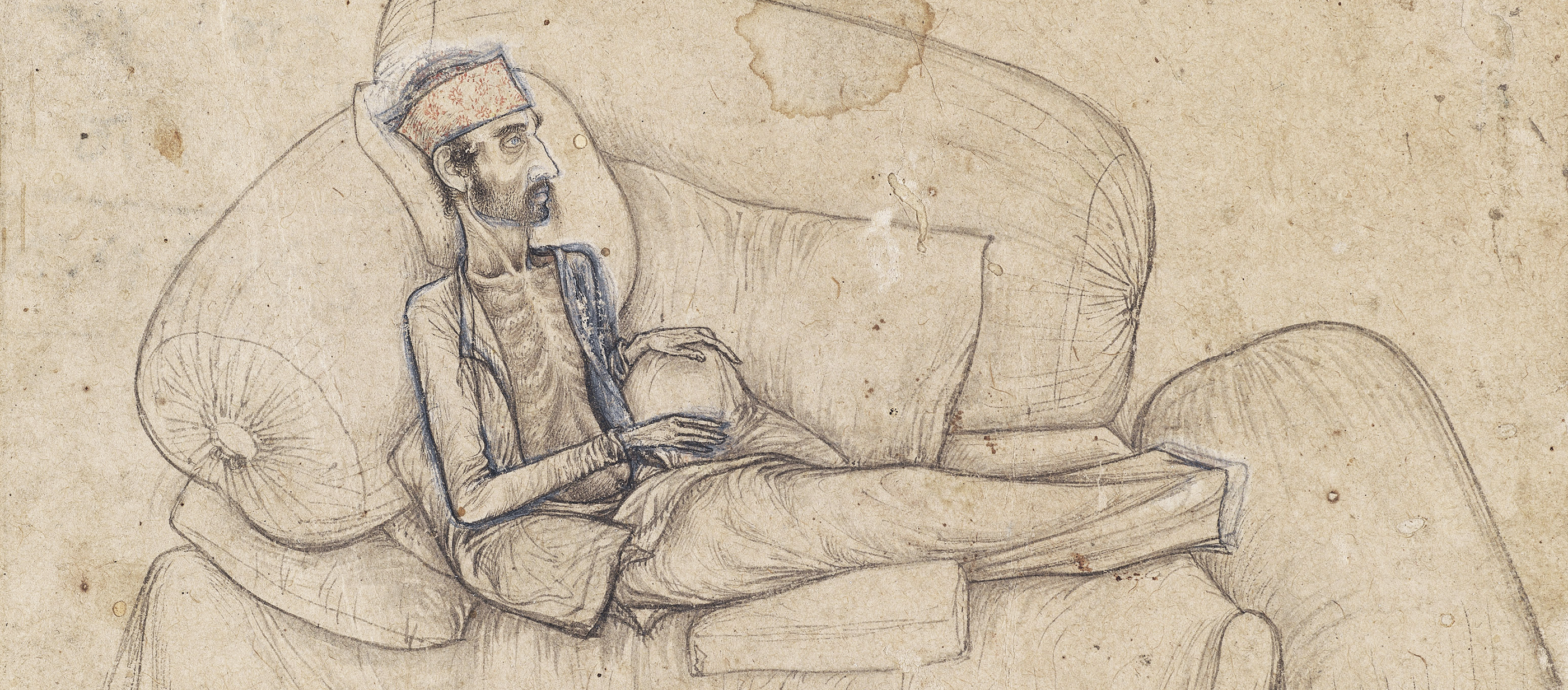
Dying Inayat Khan, attributed to Balchand, c. 1618. Museum of Fine Arts, Boston, Francis Bartlett Donation of 1912 and Picture Fund.
Hamlet: How absolute the knave is! We must speak by the card, or equivocation will undo us. By the Lord, Horatio, these three years I have taken a note of it; the age is grown so picked that the toe of the peasant comes so near the heel of the courtier, he galls his kibe. How long hast thou been a grave maker?
First Clown: Of all the days in the year, I came to it that day that our last king Hamlet overcame Fortinbras.
Hamlet: How long is that since?
First Clown: Cannot you tell that? Every fool can tell that: it was the very day that young Hamlet was born, he that is mad, and sent into England.
Hamlet: Aye, marry, why was he sent into England?
First Clown: Why, because he was mad: he shall recover his wits there; or, if he do not, it’s no great matter there.
Hamlet: Why?
First Clown: ’Twill not be seen in him there; there the men are as mad as he.
Hamlet: How came he mad?
First Clown: Very strangely, they say.
Hamlet: How strangely?
First Clown: Faith, even with losing his wits.
Hamlet: Upon what ground?
First Clown: Why, here in Denmark: I have been sexton here, man and boy, thirty years.
Hamlet: How long will a man lie in the earth ere he rot?
First Clown: In faith, if he be not rotten before he dies—as we have many pocky corpses nowadays that will scarce hold the laying in—he will last you some eight year or nine year: a tanner will last you nine year.
Hamlet: Why he more than another?
First Clown: Why, sir, his hide is so tanned with his trade that he will keep out water a great while, and your water is a sore decayer of your whoreson dead body. Here’s a skull now; this skull has lain in the earth three-and-twenty years.
Hamlet: Whose was it?
First Clown: A whoreson mad fellow’s it was: whose do you think it was?
Hamlet: Nay, I know not.
First Clown: A pestilence on him for a mad rogue: he poured a flagon of Rhenish on my head once. This same skull, sir, was Yorick’s skull, the king’s jester.
Hamlet: This?
First Clown: Even that.
Hamlet: Let me see. [takes the skull] Alas, poor Yorick! I knew him, Horatio: a fellow of infinite jest, of most excellent fancy. He hath borne me on his back a thousand times, and now, how abhorred in my imagination it is! My gorge rises at it. Here hung those lips that I have kissed I know not how oft. Where be your gibes now, your gambols, your songs, your flashes of merriment, that were wont to set the table on a roar? Not one now to mock your own grinning—quite chapfallen? Now get you to my lady’s chamber, and tell her, let her paint an inch thick, to this favor she must come. Make her laugh at that. Prithee, Horatio, tell me one thing.
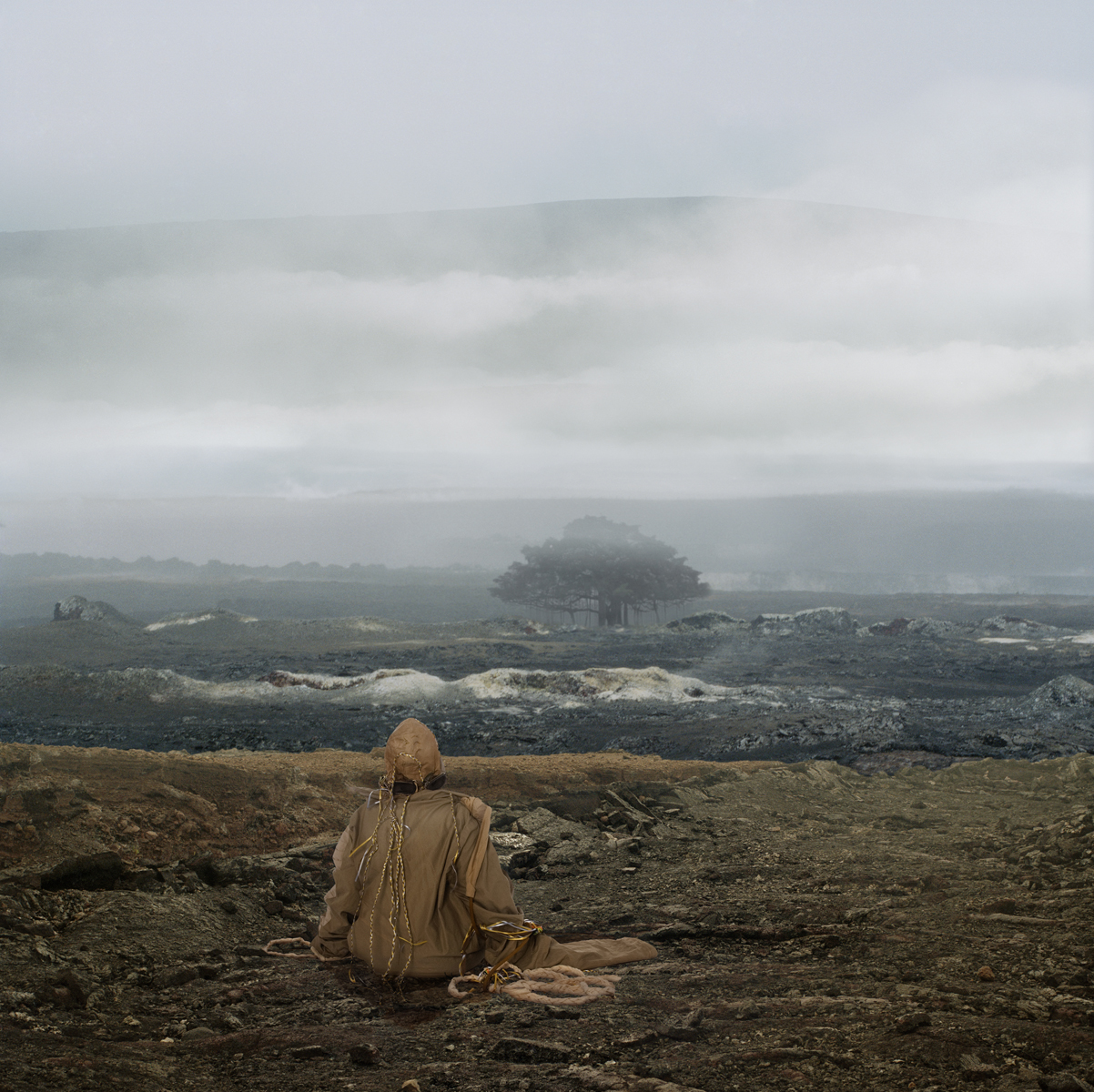
The Space Between Now and Pangaea Ultima, by Mary Mattingly, 2007. © Mary Mattingly, courtesy Robert Mann Gallery.
Horatio: What’s that, my lord?
Hamlet: Dost thou think Alexander looked of this fashion in the earth?
Horatio: Even so.
Hamlet: And smelled so? Pah! [puts down the skull]
Horatio: Even so, my lord.
Hamlet: To what base uses we may return, Horatio! Why may not imagination trace the noble dust of Alexander, till he find it stopping a bunghole?
Horatio: ’Twere to consider too curiously, to consider so.
Hamlet: No, faith, not a jot, but to follow him thither with modesty enough, and likelihood to lead it—as thus: Alexander died, Alexander was buried, Alexander returneth into dust; the dust is earth; of earth we make loam; and why of that loam whereto he was converted, might they not stop a beer barrel?
Imperious Caesar, dead and turned to clay,
Might stop a hole to keep the wind away:
O, that that earth, which kept the world in awe
Should patch a wall to expel the winter’s flaw!
From Hamlet. This scene contains the only mentions of poor Yorick. Of the seventeen named characters in the dramatis personae, eight die during the play: Rosencrantz, Guildenstern, Ophelia, Polonius, Laertes, Gertrude, Claudius, and Hamlet. Hamlet’s father, who appears as a ghost, is dead at the play’s start. In the five-year span of 1599 to 1604, Shakespeare wrote Henry V, Julius Caesar, Hamlet, Twelfth Night, Troilus and Cressida, Measure for Measure, and Othello.
Back to Issue




